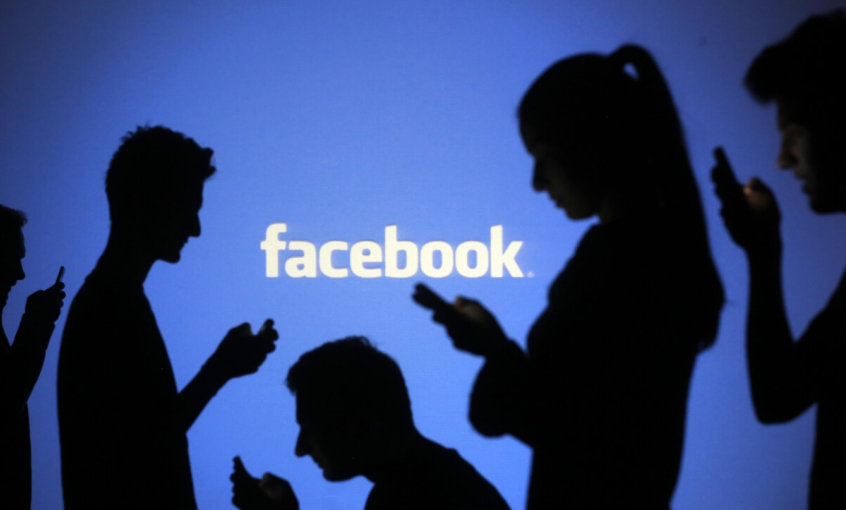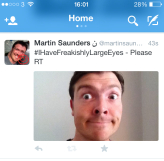
The Internet is in danger of turning us all into addicts. Time spent online continues to rise among every segment of the world's population, and becomes more natural to each emerging generation. We're hyper-connected, playing our games, sharing our baby photos and watching TV together in collaborative ways that were unimaginable 30 years ago. Thanks to smartphones we check our social media accounts regularly – and in some cases constantly. Their use has become habitual, rewarding, and incredibly hard to give up (even for Lent).
Calling this 'Internet addiction' however is slightly misleading. It's not online media that's the problem, so much as the way that we engage with it. As we do, we're actually getting addicted to something else.
Dopamine is your brain's in-built reward system. It's a neurotransmitter released when you achieve something; when you complete a work task, submit an essay or complete a run. When it enters the right part of your brain, it makes you feel good; successful; purposeful. It can also be stimulated artificially, for instance through the consumption of nicotine or cocaine.
Dopamine also affects our sense of self. We draw satisfaction from our successes, but the science behind that feeling is the release of this chemical substance. And here's why that's important: dopamine is also generated by our online 'performance.' When our picture of a family photo receives a 'like' on Facebook, or our amusing one-liner about Kim Kardashian gets retweeted, one of those tiny shots of dopamine gets released into our brain.
It's literally natural then for us to check back a few moments later, hoping that further attention will bring another reward. Now we're up to four 'likes' and 15 retweets, and the dopamine is flowing steadily. Those who've been at the centre of Internet viral sensations have described the obsessive nature of what follows, as those minuscule messages of affirmation get transmitted to the brain and paralyse it from focusing on anything else. We're hooked.
I've sat and watched as Christian leaders with high Twitter followings sit obsessively checking their mentions. I know others who've earnestly set up Facebook 'fan' pages for themselves, and desperately rallied people to sign up. And while we might not quite go to those extremes, many of us will recognise those kinds of compulsions in ourselves.
Who hasn't felt a little thrilled when their thoughts or images were affirmed on social media? Which of us doesn't recognise that pull to check back and see if we've been congratulated further? This is what dopamine does: it tricks us into deriving our sense of value from what others think of us, or at least, the version of ourselves which we present online.
Here's why that's such a problem:
Dopamine is a massive distraction. In highly scientific terms, it fries our brains. When our social media accounts are attracting interest and activity, we will naturally find it difficult to concentrate on something else, not only because our excitement and interest is drawn by the attention, but because of the chemical party going on in our heads. This renders us much less effective and productive, and also makes us prone to self-obsession. We start to believe the hype we've created about ourselves.
A divorce between the real and online self. The Internet is a great place to hide from our inadequacies and shortcomings. Behind the comfort of the digital wall, we present avatars of ourselves without even realising it. We present our best selves because, frankly, who'd do anything else, and the receipt of praise and attention only causes us to exaggerate that. Our authenticity is at risk of diminishing as we seek to live up to the version of us which gets the most 'likes.' The most dangerous aspect of this is how subtle it is; few of us are ruthlessly self-critical enough to notice the behaviour in ourselves (although we find it easier to spot in others).
The highs are great; the lows can be awful. Dopamine is addictive, but unlike the nicotine route, social media can't guarantee us access to it. A blogger used to minimal traffic suddenly sees his film review go viral after one of the actors involved spots and retweets it. But once the thrill of that event has dissipated, he's back to receiving 100 hits for every article he writes. The resulting dopamine low is a source of sadness and lowering self-esteem.
This is not, you'll be delighted to hear, all heading towards an inevitably blithe conclusion about knowing where our true sense of self-worth and affirmation should come from. But when we understand the science of modern self-esteem, and become aware of the physical reality of dopamine, perhaps we should take steps to counter its influence.
Here are just a few suggestions - practical things that could help limit the impact of social media-induced dopamine:
Set social media limits and stick to them. We often don't notice just how much we're checking in on social media. Often that's in order to find out what others are saying and doing, but it's also in the hope of personal interaction; the chance that someone might have messaged us. The same can be true of our use of email, once something you logged into a few times a day or less, now constantly pushed to your phone along with a red light or notification screaming 'read me'! So it's a good idea to set personal limits; to restrict ourselves to a few moments of proper engagement with these platforms. With that in mind...
Only use social media on certain devices. This is all about removing the temptation to instinctively check our profiles at all times. Stories abound of diners stacking their phones in the middle of the table and making the first person to check their phone pay the bill, or of people crashing their bike/car/lorry/light aircraft as a result of obsessively checking Twitter. By taking these platforms away from our fingertips, we help ourselves to enforce a little self-discipline.
Check yourself for authenticity. Finally, whatever you post, make sure it's really you posting it. Putting digitally-enhanced versions of ourselves into the online space for the sake of affirmation is really just stealth hypocrisy. That doesn't mean we have to completely over-share on every aspect of our lives (a separate social media pitfall) but it does mean being real about what we do share. So don't tweet your support of a cause just because you think you ought to; don't celebrate a recently-deceased poet (who you'd never heard of) just because everyone else is doing that today. Dopamine is dangerous enough; when we're receiving it for fakery it can be toxic.
Recognising the science of what's really going on when we engage in social media, and understanding the pitfalls, helps us to exercise some self-discipline around it. Dopamine is addictive and intoxicating, but it also potentially threatens all sorts of things from our concentration levels to our personal integrity. By setting limits, taking breaks, and staying honest, we give ourselves a chance of controlling our use of social media, rather than letting it control us.
Martin Saunders is a Contributing Editor for Christian Today and the Deputy CEO of Youthscape. You can follow him on Twitter @martinsaunders

















